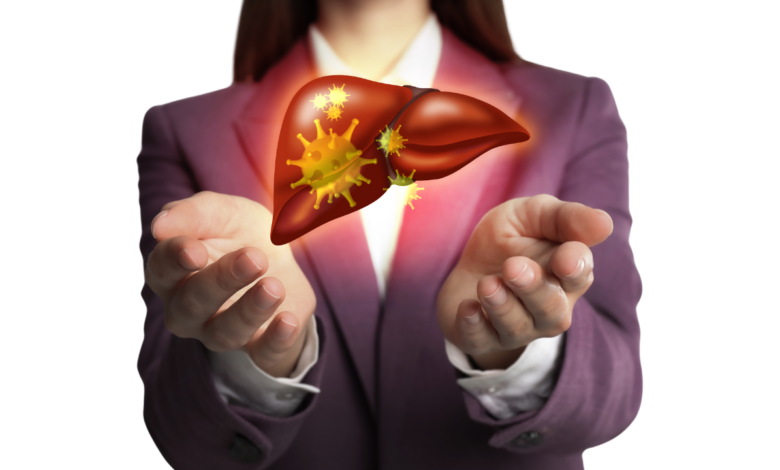Liver Cancer: A cancer of the liver.

What is the Liver Cancer ?
Liver cancer is a malignant growth that starts in the liver. It can be primary, meaning it originates in the liver itself, or secondary, meaning it spreads to the liver from another part of the body.
What are the symptom of Liver Cancer?
Early-stage liver cancer often has no symptoms. As the cancer progresses, symptoms may include:
- Abdominal pain: A dull ache in the upper right side of the abdomen.
- Weight loss: Unexplained weight loss.
- Loss of appetite: Reduced appetite.
- Nausea and vomiting: Feeling sick to your stomach.
- Fatigue: Feeling tired and weak.
- Jaundice: Yellowing of the skin and eyes.
- Itchy skin: Intense itching.
- Dark urine: Urine that is darker than usual.
- Light-colored stools: Stools that are lighter than usual.
Who can suffer from Liver Cancer?
Several factors can increase your risk of developing liver cancer, including:
- Chronic hepatitis B or C: These viral infections can lead to liver inflammation and damage over time.
- Alcohol abuse: Excessive alcohol consumption can damage the liver.
- Non-alcoholic fatty liver disease (NAFLD): This condition can lead to liver inflammation and scarring.
- Aflatoxin exposure: Exposure to this toxin, found in some foods, can increase the risk of liver cancer.
- Certain genetic conditions: Inherited conditions like hemochromatosis or Wilson disease can increase the risk.
What are the type of Liver Cancer ?
The two main types of primary liver cancer are:
- Hepatocellular carcinoma (HCC): The most common type, originating from liver cells.
- Cholangiocarcinoma: Cancer of the bile ducts within the liver.
Which diagnostic are available for the Liver Cancer ?
· Blood tests: Can reveal elevated liver enzymes, abnormal levels of alpha-fetoprotein (AFP), and other markers.
· Imaging tests: Ultrasound, CT scan, MRI, or PET scan can help visualize the liver and detect any abnormalities.
· Liver biopsy: A tissue sample is taken from the liver for examination under a microscope.
What are the treatment of the Liver Cancer ?
Treatment options for liver cancer depend on the stage of the disease, the type of cancer, and the patient’s overall health. Possible treatments include:
- Surgery: Removal of the tumor or part of the liver.
- Chemotherapy: Using drugs to kill cancer cells.
- Radiation therapy: Using high-energy rays to kill cancer cells.
- Targeted therapy: Using drugs that target specific molecules involved in the growth and survival of cancer cells.
- Liver transplant: Replacing the damaged liver with a healthy liver from a donor.
Which diet should I take ,if any ?
A healthy diet can support liver function and may help in recovery. Consider:
- Limit alcohol: Avoid alcohol consumption altogether.
- Healthy fats: Choose healthy fats like olive oil and avocados.
- Fruits and vegetables: Consume a variety of fruits and vegetables.
- Whole grains: Opt for whole grains over refined grains.
- Lean protein: Choose lean sources of protein like fish and poultry.
- Hydration: Stay well-hydrated.
Which speciality of the doctor will Liver Cancer?
A gastroenterologist or hepatologist, a doctor specializing in liver diseases, is typically involved in the diagnosis and treatment of liver cancer.
In Liver Cancer completely curable ?
The curability of liver cancer depends on several factors, including the stage of the disease and the patient’s overall health. Early detection and treatment can improve the chances of a successful outcome. However, liver cancer can be challenging to treat, and the prognosis may vary.





